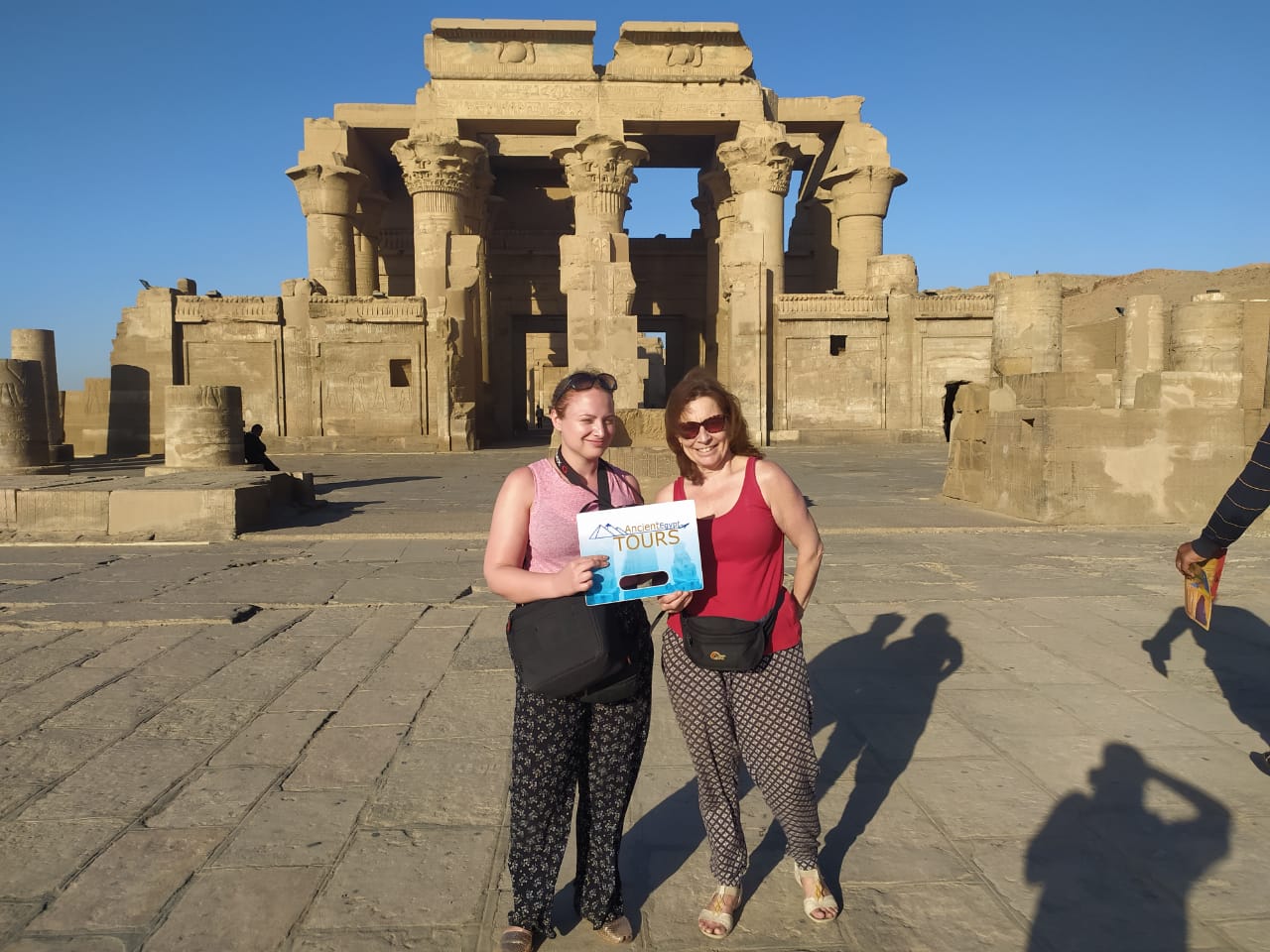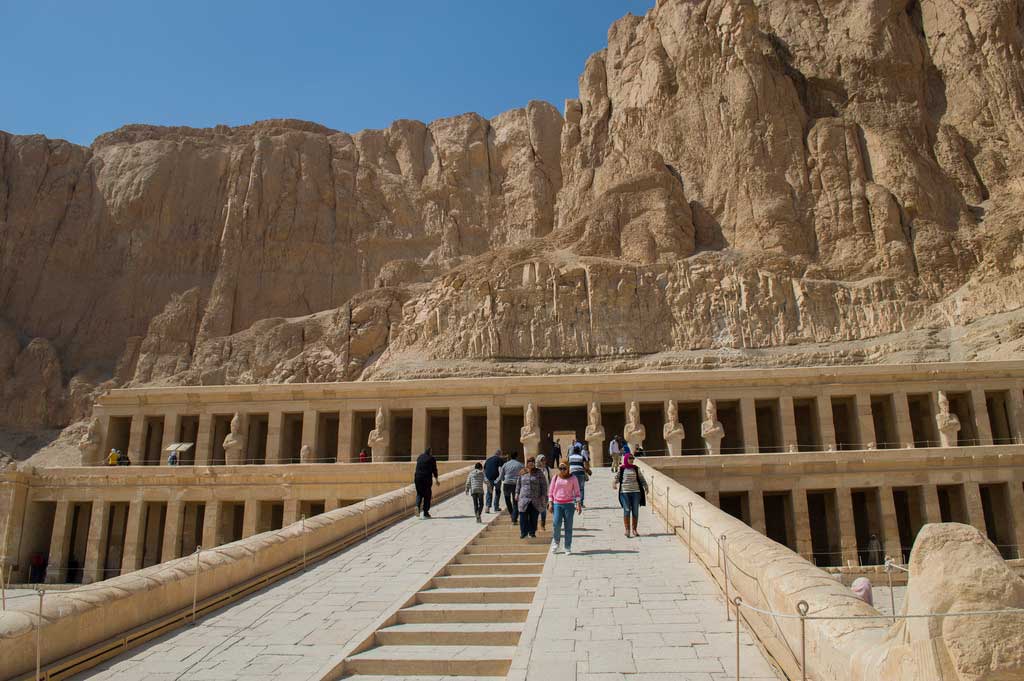from 0 review
4 Days & 3 Nights
Daily Tour
5 people
Deutsche, English, Español, Français, italiano, русский, العربية, 中国語, 日本語
Cruises trip Every Thursday, Saturday, Sunday & Monday, for 5 Days 4 Nights, Private trip includes Pick up and drop off services, Private Tour guide, Entrance fees to the mentioned historical places, all transfers by a modern A/C vehicle, 4 Nights Nile Cruise on 5 Stars Cruise Based on Full Board Basis, All Sightseeing, all service charges and taxes.

Ancient Egypt Tours Our representative will pick you up from your hotel in Cairo or Giza, transfer to Luxor Airport for Flight to Aswan, where you will be met, assisted by our Luxor representative. start visit the world famous High Dam, An engineering miracle was constructed between 1960 and 1970. It aimed to increase economic production by further regulating the annual river flooding and providing storage of water for agriculture, and later, to generate hydroelectricity. The dam has had a significant impact on the economy and culture of Egypt, Then move to the Unfinished Obelisk, This obelisk is believed to belong to Queen Hatshepsut, one of the rulers of the 18th dynasty and the royal wife of king Tuthmosis II. The unfinished obelisk is the largest known ancient obelisk, located in the northern region of the stone quarries of ancient Egypt in Aswan, Egypt. It is unknown which pharaoh created this structure. It is nearly one third larger than any ancient Egyptian obelisk ever erected. If finished it would have measured around 42 m and would have weighed nearly 1,200 tons. Then move to the beautiful located Temple of Philae on Isis Island and the Granite Quarries, which is dedicated to the goddesses Isis and Hathor. Overnight in Aswan Meals: Lunch, Dinner

Sail to Kom Ombo, Afternoon Tea, The Temple of Kom Ombo standing on high grounds overlooking the Nile, the Temple of Sobek and Haroeris in Kom Ombo (also known simply as Kom Ombo Temple) dates from about 180 BC during the Ptolemaic era, with additions made into Roman times. The temple at Kom Ombo was also built at this time, under Ptolemy VI. Since this bend in the Nile was a favored spot for crocodiles to bask in the sun and threaten locals, it is natural that the temple would be dedicated to Sobek, the crocodile god. But it is unusual in having a double dedication: it also honors Haroeris, a form of the falcon-headed god Horus. The hypostyle halls were added under Ptolemy XIII (51-47 BC); the Roman emperor Trajan (53-117 AD) added the forecourt and outer enclosure walls Sail to Edfu, Dinner on boar, Visit the majestic temple dedicated to Horus. The Edfu’s Temple is the second largest temple after Karnak. Which was known in Greco-Roman times as Apollonopolis Magna, The temple was dedicated to the falcon God Horus and was built during the Ptolemaic period. Sail to Luxor, Afternoon Tea, Dinner on board & Galabya party Meals: Breakfast, Lunch, Dinner Overnight in Luxor

Breakfast on board. Cross to the West Bank to visit to Valley of the Kings the Valley of the Kings was created and used from approximately 1539 BC to 1075 BC. It contains some 60 tombs, starting with Thutmose I and ending with Ramses X or XI. The official name of the site was The Great and Majestic Necropolis of the Millions of Years of the Pharaoh, Life, Strength, Health in The West of Thebes, or more usually, the Great Field. The most famous tomb is KV62, the Tomb of King Tutankhamun. The discovery of King Tut’s tomb was made by Howard Carter in 1922; Tutankhamun’s tomb was the first royal tomb to be discovered that was still largely intact. you will visit 3 tombs. You will continue to explore then transfer to the Mortuary Temple of Queen Hatshepsut at El Deir El Bahary, Queen Hatshepsut was the first great woman in recorded history: the forerunner of such figures as Cleopatra, Catherine the Great and Elizabeth I.The Mortuary Temple of Hatshepsut is the focal point of the Deir el-Bahri complex of mortuary temples and tombs located on the west bank of the Nile, opposite the city of Luxor. Hatshepsut was female pharoah. Her temple, this temple was built on three surfaces take the form of balconies, devoted primarily to the worship of the god Amun, and to perform funeral rites for the queen known as El Deir El Bahary. Proceed to the two colossal statues of Amenhotep III, Colossi of Memnon are the two massive stone statues of Pharaoh Amenhotep III. Overnight in Luxor. Meals: Breakfast, Lunch, Dinner

The Karnak Temple, the largest place of worship ever built. In ancient Egypt, the power of the god Amun of Thebes gradually increased during the early New Kingdom, and after the short persecution led by Akhenaten, it rose to its apex. In the reign of Ramesses III, more than two thirds of the property owned by the temples belonged to Amun, evidenced by the stupendous buildings at Karnak. Although badly ruined, no site in Egypt is more impressive than Karnak. It is the largest temple complex ever built by man, and represents the combined achievement of many generations of ancient builders. The Temple of Karnak is actually three main temples, smaller enclosed temples, and several outer temples located about three kilometers north of Luxor, Egypt situated on 100 ha (247 acres) of land. Karnak is actually the sites modern name. Its ancient name was Ipet-isut, meaning "The Most Select (or Sacred) of Places". Then move to Luxor Temple. It was built by Amunhotep III in 18th Dynasty in the New Kingdom and it was completed by Ramesses II during the 19th Dynasty. King Ramses II was the most famous king in the 19th Dynasty. He ruled Egypt for about 67 years. It was dedicated to the great god Amun-Ra, his wife Mut and their son Khonsu together representing the Theban triad. Enjoy visiting Obelisk of Ramses II in front of the 1st Pylon. It was called "Ipet resyt", which means the Southern Opet or the Place of the Seclusion of Amun-Re. It was directly connected to the temple of Karnak, the main cult center of Amun-Re or Amun-Min, the sky god or the ithyphallic fertility god. The temple of Luxor has, since its inception, always been a sacred site. After Egypt's pagan period, a Christian church and monastery was located here, and after that, a mosque (13th century Mosque of Abu el-Haggag) was built that continues to be used today. Then you will be transferred to Luxor domestic airport to fly back to Cairo where you will be met by a company Representative and transferred by private air conditioned van class to your hotel in Cairo.